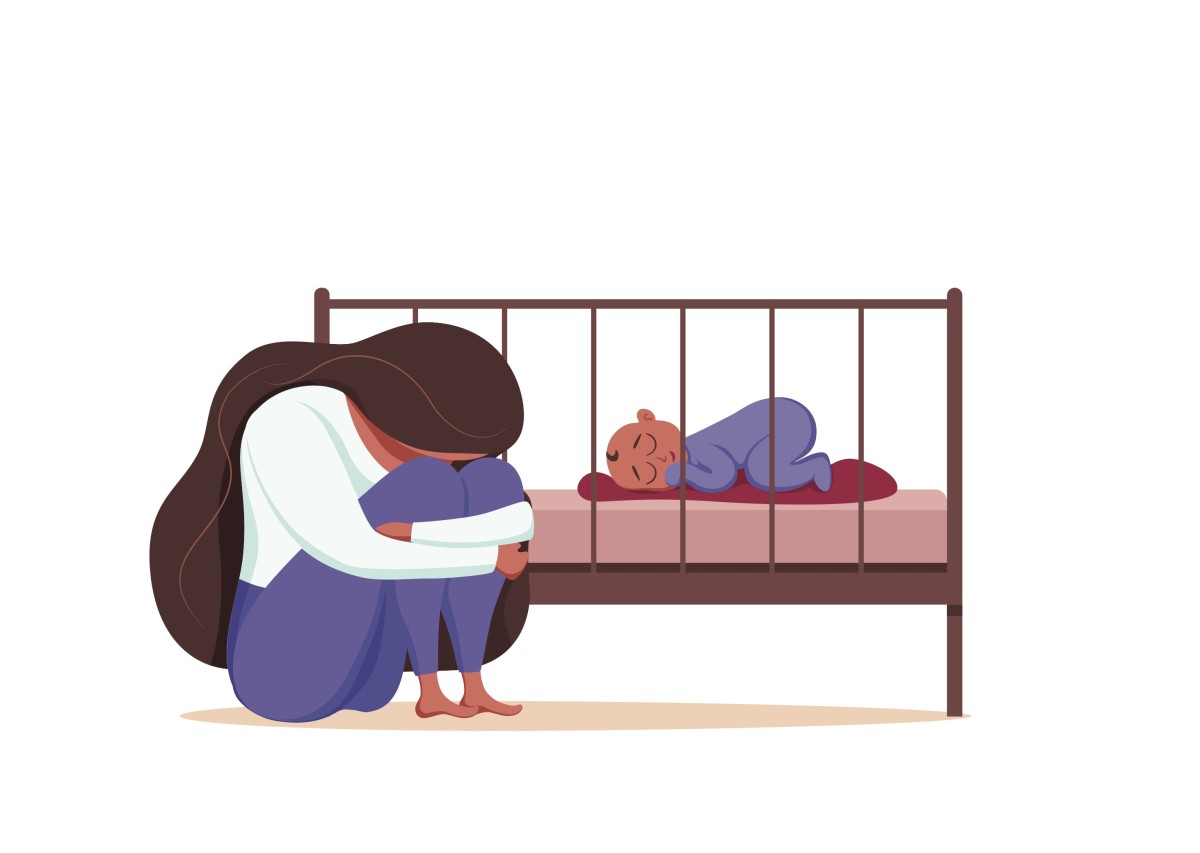Earlier this year, a Singaporean woman together with her newborn daughter plummeted to her death. The sound of breaking bamboo poles followed by two loud thuds drew the attention of a passerby who then called the police. The baby was just five weeks old.
Investigations found a stool positioned below the kitchen window of the apartment and no signs of physical struggle. But from a psychological standpoint, signs of a mental struggle were strewn everywhere, starting with the baby shorts, baby socks, diaper, and broken pair of spectacles found on the ground near the bodies.
After delivery, the woman told her husband on several occasions that she was feeling stressed over having to take care of her two children; she also wanted to quit her job. Her husband reassured her by telling her that his mother would look after their elder child so she would only have to look after the infant, and rest. Furthermore, he stated that anxiety over returning to work was expected and she should instead be grateful for her job amidst the COVID-19 pandemic.
The eventual tragic turn of events with the death of mother and infant is a stark reminder of the importance of recognising post-natal depression (PND) and getting professional help where needed. It is also imperative that spouses, family, and friends empathise with new mothers as they shoulder the weight of caring for a newborn whilst grappling with hormonal changes and other demands of managing the household or getting ready to return to work.
Baby Blues vs PND
80% of new moms will experience postpartum “baby blues” starting in the first week after delivery, and symptoms commonly include:
- Mood swings or irritability,
- Crying spells,
- Anxiety,
- Reduced concentration,
- Appetite problems
- Difficulty sleeping despite exhaustion.
The blues are short-lived, usually lasting for two weeks.
PND may be mistaken for baby blues at first — but the signs and symptoms are more severe and last longer. Some other distinguishing features include:
- Feelings of isolation and withdrawal from others
- Feelings of hopelessness, guilt and/or worthlessness
- Disturbing thoughts about harming yourself and your baby
- Diminished ability to care for baby and handle daily tasks
PND affects one in 10 women who have recently delivered. It may persist beyond a year and professional help is more likely crucial for recovery.
Causes of PND
There isn’t a single cause for PND, but there are several factors that can predispose an individual to this condition:
- Prior history of depression
- Uncertainty about the pregnancy
- Family history of mood disorders
- Limited social support
- Experiencing a trying event (e.g. retrenchment or a health emergency)
Diagnosis
This typically involves talking about your feelings and mental health with a doctor, to firstly discern PND from baby blues. Sharing more with your doctor can help craft a more suitable treatment plan for you in the long run. This is usually accompanied by a depression screening in the form of a questionnaire, and blood tests to investigate if the signs and symptoms are in fact due to an under-active thyroid. Further tests may be ordered by the doctor to rule out other causes for your symptoms.
Treatment
PND can sometimes go away by itself within three months of the baby’s birth. The majority of cases involving PND can be treated with medication or a synergy of medication and psychotherapy, plus a touch of group therapy. Some cases can even be severe enough to warrant hospitalisation and may require electroconvulsive therapy if the individual suffers from severe depression with hallucinations, delusions, or overwhelming thoughts of suicide.
In the best-case scenario, treatment is sought as soon as possible, as PND affects not just the mother but also the baby. It can cause the child to have disturbed sleep, impeded cognitive development, insecurity, and frequent temper tantrums. It is also advisable to avoid taking birth control pills as a form of contraception as they may antagonise depressive symptoms.
Self-help tips to overcome PND
- Get lots of rest and sleep – nap whenever your baby is sleeping and get help from family at night so that you get sufficient undisrupted sleep.
- Set realistic expectations – scale back your expectations for the perfect household. Do not give yourself undue stress by wanting to do everything.
- Eat a healthy, well-balanced diet – so that you don’t suffer from dips in energy and feel low
- Exercise – it helps both mind and body
- Meet other mums – this will help you feel less isolated
- Do something you love – living 24/7 for another human being will leave you drained and resentful. Whatever it was pre-baby that you enjoyed doing needs to find its way back into your post-baby life (even if it’s only for short periods of time).
- Bond with your spouse – it is easy to neglect the other person you’re in this new life with but committing to doing something with your spouse once a day can go a long way toward helping you both feel connected and supported.












